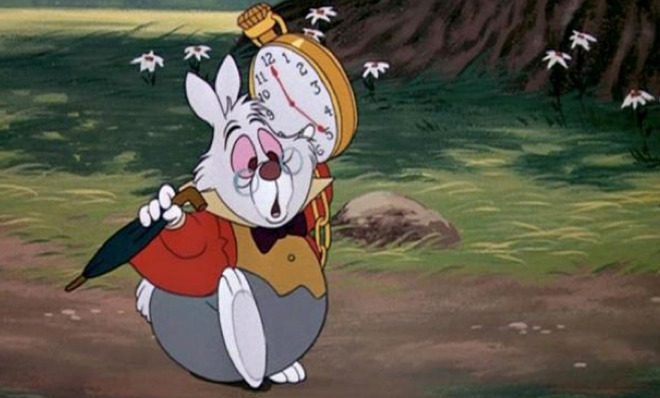Why we can't stop procrastinating, according to science
Important things can wait — read this article first!

A free daily email with the biggest news stories of the day – and the best features from TheWeek.com
You are now subscribed
Your newsletter sign-up was successful
If you are constantly running late or finding yourself behind on deadline, admit it: You're a procrastinator.
And you're not alone. A study in Psychological Bulletin by University of Calgary professor Piers Steel showed that the percentage of chronic procrastinators has grown from about 5 percent in 1978 to 26 percent in 2007. (Other researchers have put more recent numbers at around 20 percent, but it’s clear the problem is on the rise.)
So what's going on?
The Week
Escape your echo chamber. Get the facts behind the news, plus analysis from multiple perspectives.

Sign up for The Week's Free Newsletters
From our morning news briefing to a weekly Good News Newsletter, get the best of The Week delivered directly to your inbox.
From our morning news briefing to a weekly Good News Newsletter, get the best of The Week delivered directly to your inbox.
Part of the reason may have to do with technology, Steel hypothesized. There’s so much to do online, and so many different media at our fingertips, that putting off until tomorrow (and the day after) what we could do today is almost natural. He estimated that new technologies like email and mobile phones cost the U.S. about $70 billion in lost productivity a year.
Indeed, The Telegraph reported that a survey by Webtrate showed that 60 percent of respondents who looked at email or a social media ping in the middle of work forgot what they were thinking about. Email and social media took away an hour of productivity for about 36 percent of survey takers, and 16 percent lost more than an hour.
But there may be more to it than that. A new study on twins published in Psychological Science has found there may be a genetic link; the siblings in the study tended to have similar self-reported levels of procrastination. Meanwhile, another study in Current Psychology argues that those who are more likely to leave things up to chance have a propensity to wait until the last minute (or even later).
Dr. Philip R. Muskin, professor of psychiatry at Columbia University Medical Center, explained to The Week that there is no official diagnosis of procrastination. Furthermore, scientists have yet to find any definitive biological reason as to why we so enjoy putting things off.
A free daily email with the biggest news stories of the day – and the best features from TheWeek.com
There are other reasons why we procrastinate, Muskin pointed out. People tend to delay important tasks because they fear negative feedback from others, which means dallying is a way to protect their self-esteem. He added that our culture is also at fault, since it makes failure such a taboo.
"If you think about not doing a term paper, or putting off sending in your taxes to the last minute, it makes sense that the fear of getting a low grade on the paper, the realization that one has to pay money to the government are experienced as negative," he said. "Thus putting off those tasks is protective, but the procrastination itself then leads to adverse consequences. Rather than actively trying to solve a problem, people who procrastinate avoid the problem all together."
On the other hand, some people enjoy procrastinating because they like the rush of sweaty palms and heart palpitations when they are running late.
"Some people 'enjoy' the thrill of waiting until the last minute and accomplishing the task," Muskin said. "This type of brinksmanship looks like procrastination, but the person is not avoiding the task, just making it more of a challenge for herself."
If you want to kick the habit, Muskin suggested building up your self-esteem.
"What are you afraid of? Avoiding things does not help the fear, it enhances the fear," he said. "The more attention you pay to the task the better it will be and the probability of your fear coming true will be lessened."
Michelle Castillo is a freelance writer and editor and a pop culture junkie. Her work has appeared in TIME, the Los Angeles Times and CBS News.
-
 The week’s best photos
The week’s best photosIn Pictures An explosive meal, a carnival of joy, and more
-
 The ‘ravenous’ demand for Cornish minerals
The ‘ravenous’ demand for Cornish mineralsUnder the Radar Growing need for critical minerals to power tech has intensified ‘appetite’ for lithium, which could be a ‘huge boon’ for local economy
-
 Why are election experts taking Trump’s midterm threats seriously?
Why are election experts taking Trump’s midterm threats seriously?IN THE SPOTLIGHT As the president muses about polling place deployments and a centralized electoral system aimed at one-party control, lawmakers are taking this administration at its word